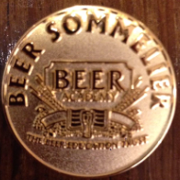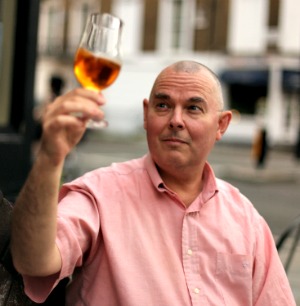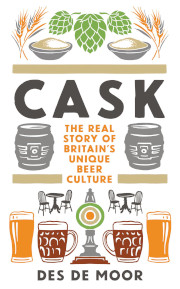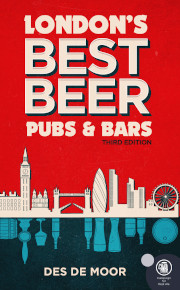I’m a beer writer, tour guide, walk leader, tutored tasting host and Accredited Beer Sommelier based in London.
My latest book is Cask: The real story of Britain’s unique beer culture, published in August 2023. Cask beer is a unique format of fresh, live draught beer that, at its best, delivers a taste experience unmatchable in any other way. My pioneering book, aimed at the discriminating drinker, explains what makes it special, and explores its past, present and future.
I’ve published three editions of London’s Best Beer, Pubs and Bars, the award-winning definitive guide to drinking beer in London. “Probably the best book about beer in London” — Londonist. For more see the London page.
Why not join me on one of my regular brewery heritage walks or tutored tastings. Or I can provide an informal private London heitage pub walk and tasting for your group, or a tasting for your event, alongside various other beer-related services. For more see the Beer Tours page.
I’m a contributor to numerous other books, magazines and websites, including providing the UK listings for The Pocket Beer Book and editing the 2020 edition of Beer in the Netherlands.
Elsewhere on the site are numerous blog posts and beer reviews, many of them archiving material that’s already appeared elsewhere but with some exclusive pieces. Scroll down to see the latest posts, or try these:
- Back in black: living beer heritage in the West Midlands
- London brewers 1971
- The marvels of malt: tasting single malt beers
- Murnau: Beer from the Blue Land
- Anchor and the birth of craft beer
- Is cask craft?
I also blog about walking at London underfoot: London’s walking trails under the microscope.






Hi, do you know of a Fuller’s Vintage Ale club/ appreciation society?
I have several vintages in my cellar that I am seeking to clear.
In hope
Tom Wise
Dear Mr De Moor,
I am thoroughly enjoying reading your book “Cask”. Though I am afraid I am going to disappoint you and confirm your worst fears, outlined on page 241, regarding slops and drip trays.
In 1971, when I was 17, left Scotland for Birmingham to study. I had only had about 18 months of underage drinking in my home town and had never encountered “real ale”. Lager had become a little more popular in Scotland than in England, but sales were growing in both countries.
I remember my first beer in Birmingham. The barmaid could not understand what I was asking for. Eventually after a finger point, she said “Oh Larger” and I apologised, quite sincerely, for not pronouncing the first “r”. As I was drinking it, I realised there was not a first “r” only the one at the end.
Moving to English drinking was a bit of a culture shock. Opening times were different, later and on a Sunday. Architecture, both inside and out, were vastly different, pubs were bigger, had gardens, many rooms publicans on premises and tied houses.
Birmingham had 815 pubs of which 729 (89.4%) were owned by two of the big six beer companies; Bass with Mitchell & Butlers (M & B) and Allied Breweries with Ansells. M & B pubs had Brew XI (keg and draught), M & B Mild and Worthington E as its special keg bitter, Ansells had a similar range Ansells Bitter (draught or keg), Ansells Mild and Double Diamond as its special keg Bitter.
In summer of 1972 I worked as a barman, becoming chargehand, at Butlins in Ayr. In Scotland all was keg. Slops had to be added to people’s pints either by having some in glass at start of pouring or topping up. It all seemed kind of pointless as either way resulted in more froth and spillage. Cleaning pipes was not something that happened often during the season and was also a contributory factor. Addition of slops would leave a double head of froth which looked unsightly. [Carlsberg Lager fonts always reminded me of this} The lady supervisor, not a beer drinker, would want slops from the nighttime carried over to the next morning for use. In a particularly busy nighttime only bar slops were carried forward to the next evening. This was driven by management as they expected takings to equal the cost of drink allocated to each bar. In fact they wanted more as the orange and lime cordials were to be watered down before use in drinks. They did allow a waste book; mainly used for a management (never worked in the bars) buying the staff a drink at the end of a busy shift. I was caught many a time pour drip tray content down a sink, though not as often as I did it. Many unsavoury tricks were used to keep figures somewhere near balanced for stocktakes. Including putting slops in the bottled beer at the back of shelves and trying to remember not to sell them – they were only for counting. Many and varied were the tricks used to improve takings. The worst I saw was the placing a saucer of vodka so that a vodka and orange/lime/ginger beer was made by soaking of the rim by dipping into the vodka and adding the cordial. Smell and that initial taste would fool people.
By October 1972 I stated working in a bar in Harborne, Birmingham.
The Junction was a Mitchell & Butlers pub as had been The Junction Hotel which was in the position before 1903. The main draught beers were Brew IX and M & B Mild. The special beer was Worthington E and Carling was the lager. It was not that the pub was a real ale promoting pub, it was just that, like most pubs in the area, cask had never been removed.
The Junction had a good name for Mild. Bitter spillage would, above a certain volume in the barrel, be returned to the bitter at the end of the evening and similarly with Mild spillage to the Mild. Though this would often have bitter in it because of how the drip drays were positioned. Often someone would come into the off sales hatch with a glass bottle to collect a pint of bitter/mild. A copper funnel was used to fill the bottle from a pint glass which if slops were available some had been added. The habit in England at the time of bringing up empty glasses to be refilled helped disguise the presence of spillage being in a glass. In Scotland a fresh glass had to be given each time. This meant that rounds in England waited on the slowest drinker while in Scotland were dictated by the fastest drinker. One was in deep trouble if slops happened to get put down the sink by mistake.
Whereas The White Horse (an Ansells house just down the road) had a good name for bitter as it did not return even bitter to the barrel (no additions), though I’m sorry to say it emptied lots of different drinks into the mild. Did you ever wonder why the bar staff down the road were out with a bucket collecting drinks off the table after drinking up time? It was not just to make collecting empty glasses easier – the barmaids said everything from Mild to Dark Rum went into the Mild barrel when near full but more care was taken as levels dropped until just bitter and mild then nothing.
Breweries did not allow for any spillage. Spillage occurred in many ways; overflow when pouring pints, during tapping, first pint through pipes often a bit off, wastage when cleaning pipes and this had to be paid for from takings. Some breweries gave the bar an ullage amount to allow for spillage though this did not stop the bar from adding, “slops” for that’s what they were, to fullish barrels to gain a financial advantage. Nothing was rung up on the more expensive Lounge till for the first two hours of opening!
Hi Alastair and thanks for sharing all of this, none of which surprises me! Honestly the brewing industry and pub trade have a lot to answer for in undoing their own product.